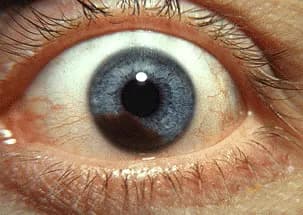
Bacteria In The Gut Modulates Response To Immunotherapy In Melanoma
Bacteria that live in the human digestive tract can influence how cancer responds to immunotherapy, opening a new avenue for research to improve treatment, a team led by researchers at The University of Texas MD Anderson Cancer Center reports in the journal Science.
Patients with metastatic melanoma treated with anti-PD1 checkpoint blockade have their disease controlled longer if they have a more diverse population of bacteria in the gut or an abundance of certain types of bacteria, according to the team's analysis of fecal samples to assess patients' gut microbiomes.
"You can change your microbiome, it's really not that difficult, so we think these findings open up huge new opportunities," said study leader Jennifer Wargo, M.D., associate professor of Surgical Oncology and Genomic Medicine. "Our studies in patients and subsequent mouse research really drive home that our gut microbiomes modulate both systemic and anti-tumor immunity."
Wargo and colleagues are working with the Parker Institute for Cancer Immunotherapy to develop a clinical trial that combines checkpoint blockade with microbiome modulation.
Research has shown that a person's microbiome is a modifiable risk factor that can be targeted by diet, exercise, antibiotic or probiotic use or transplantation of fecal material, said lead co-first author Vancheswaran Gopalakrishnan, Ph.D.
Immune checkpoint blockade drugs that free the body's own immune system to attack cancer cells help around 25 percent of metastatic melanoma patients, and those responses are not always durable. Research focuses on extending the impact of these drugs.
To assess the impact of the microbiome, Wargo and colleagues analyzed buccal swabs -- tissue samples from inside the cheek -- and fecal samples of patients treated with anti-PD1 therapy that blocks the PD1 protein on T cells, which acts as a brake on the immune system. They conducted 16S rRNA and whole genome sequencing to determine diversity, composition and functional potential of the buccal and fecal microbiomes.
While the team found no substantial differences in response or progression based on buccal samples, analysis of fecal samples of 30 patients who responded to treatment and 13 who did not told a different story.
- Patients with higher diversity of bacteria in their digestive tract had longer median progression-free survival (PFS), defined at the time point where half of studied patients have their disease progress. While the patient group with high diversity had not reached median PFS (more than half had not progressed), those with intermediate and low diversity had median PFS of 232 and 188 days respectively.
- Notable compositional differences existed in the gut microbiome of patients who responded versus those who did not, with the Ruminococcaceae family enriched in responders and the Bacteroidales order enriched in non-responders. Patients who had a high abundance of the genus Faecalibacterium (of the Ruminococcaceae family and Clostridiales order) in their gut had significantly prolonged PFS (median not reached), compared to patients who had a low abundance (median PFS of 242 days)
- Abundance of Bacteroidales was associated with more rapid disease progression, with high abundance within the gut microbiome associated with significantly reduced PFS (median 188 days), compared to low abundance (median PFS of 393 days).
Additional analysis showed that responding patients with high levels of the beneficial Clostridiales/Ruminococcaceae had greater T cell penetration into tumors and higher levels of circulating T cells that kill abnormal cells. Those with abundant Bacteriodales had higher levels of circulating regulatory T cells, myeloid derived suppressor cells and a blunted cytokine response, resulting in dampening of anti-tumor immunity.
A favorable microbiome also was associated with increased antigen processing and presentation by the immune system at the tumor site.
To investigate causal mechanisms, the team transplanted fecal microbiomes from responding patients and non-responding patients via fecal microbiome transplant (FMT) into germ-free mice. Those receiving transplants from responding patients had significantly reduced tumor growth as well as higher densities of beneficial T cells and lower levels of immune suppressive cells. They also had better outcomes when treated with immune checkpoint blockade.
Wargo and colleagues note that there is still much to learn about the relationship between the microbiome and cancer treatment, so they urge people not to attempt self-medication with probiotics or other methods.
Materials provided by University of Texas M. D. Anderson Cancer Center. Note: Content may be edited for style and length.
Disclaimer: DoveMed is not responsible for the accuracy of the adapted version of news releases posted to DoveMed by contributing universities and institutions.
References:
V. Gopalakrishnan, C. N. Spencer, L. Nezi, A. Reuben, M. C. Andrews, T. V. Karpinets, P. A. Prieto,†, D. Vicente, K. Hoffman, S. C. Wei, A. P. Cogdill, L. Zhao, C. W. Hudgens, D. S. Hutchinson, T. Manzo, M. Petaccia De Macedo,‡, T. Cotechini, T. Kumar, W. S. Chen, S. M. Reddy, R. Szczepaniak Sloane, J. Galloway-Pena, H. Jiang, P. L. Chen, E. J. Shpall, K. Rezvani, A. M. Alousi, R. F. Chemaly, S. Shelburne, L. M. Vence, P. C. Okhuysen, V. B. Jensen, A. G. Swennes, F. Mcallister, E. Marcelo Riquelme Sanchez, Y. Zhang, E. Le Chatelier, L. Zitvogel, N. Pons, J. L. Austin-Breneman, L. E. Haydu, E. M. Burton, J. M. Gardner, E. Sirmans, J. Hu, A. J. Lazar, T. Tsujikawa, A. Diab, H. Tawbi, I. C. Glitza, W. J. Hwu, S. P. Patel, S. E. Woodman, R. N. Amaria, M. A. Davies, J. E. Gershenwald, P. Hwu, J. E. Lee, J. Zhang, L. M. Coussens, Z. A. Cooper,¶, P. A. Futreal, C. R. Daniel, N. J. Ajami, J. F. Petrosino, M. T. Tetzlaff, P. Sharma, J. P. Allison, R. R. Jenq, J. A. Wargo. (2017). Gut microbiome modulates response to anti–PD-1 immunotherapy in melanoma patients. Science. DOI: 10.1126/science.aan4236
Related Articles
Test Your Knowledge
Asked by users
Related Centers
Related Specialties
Related Physicians
Related Procedures
Related Resources
Join DoveHubs
and connect with fellow professionals

0 Comments
Please log in to post a comment.